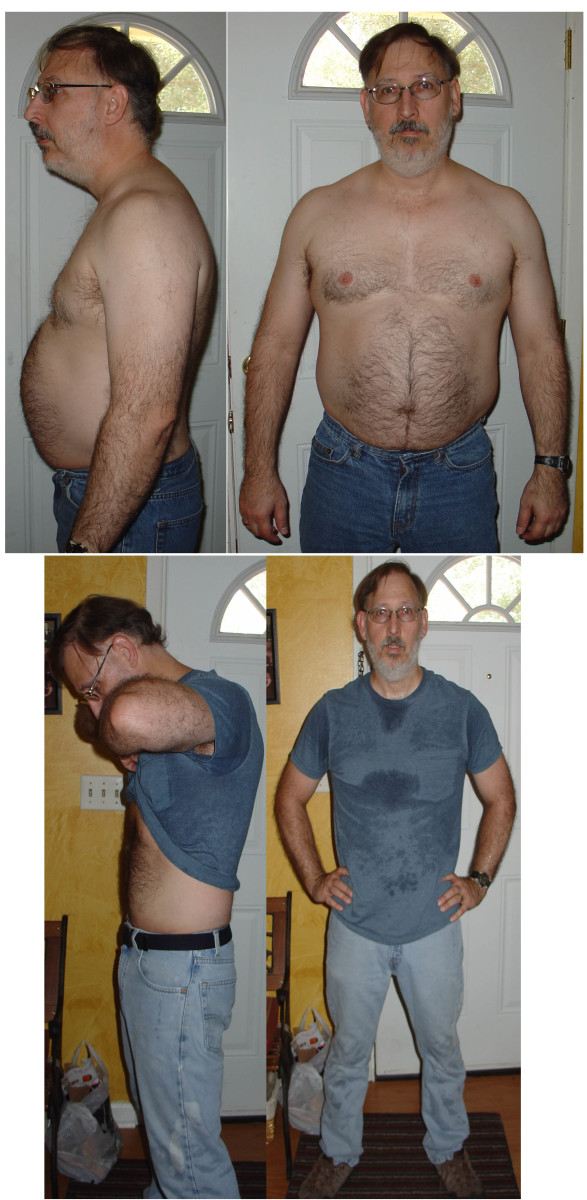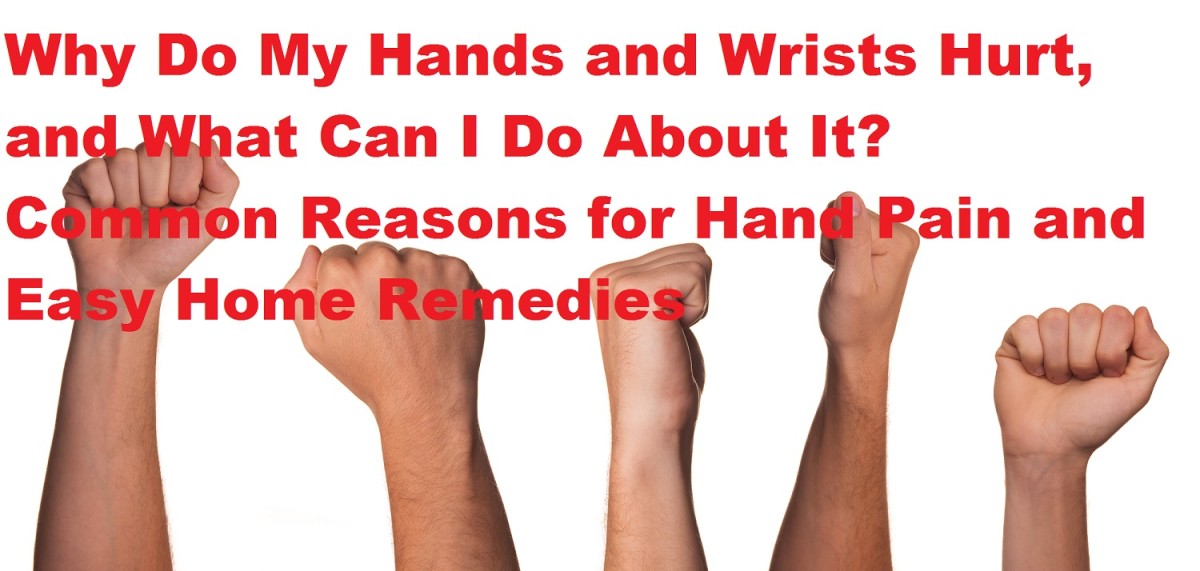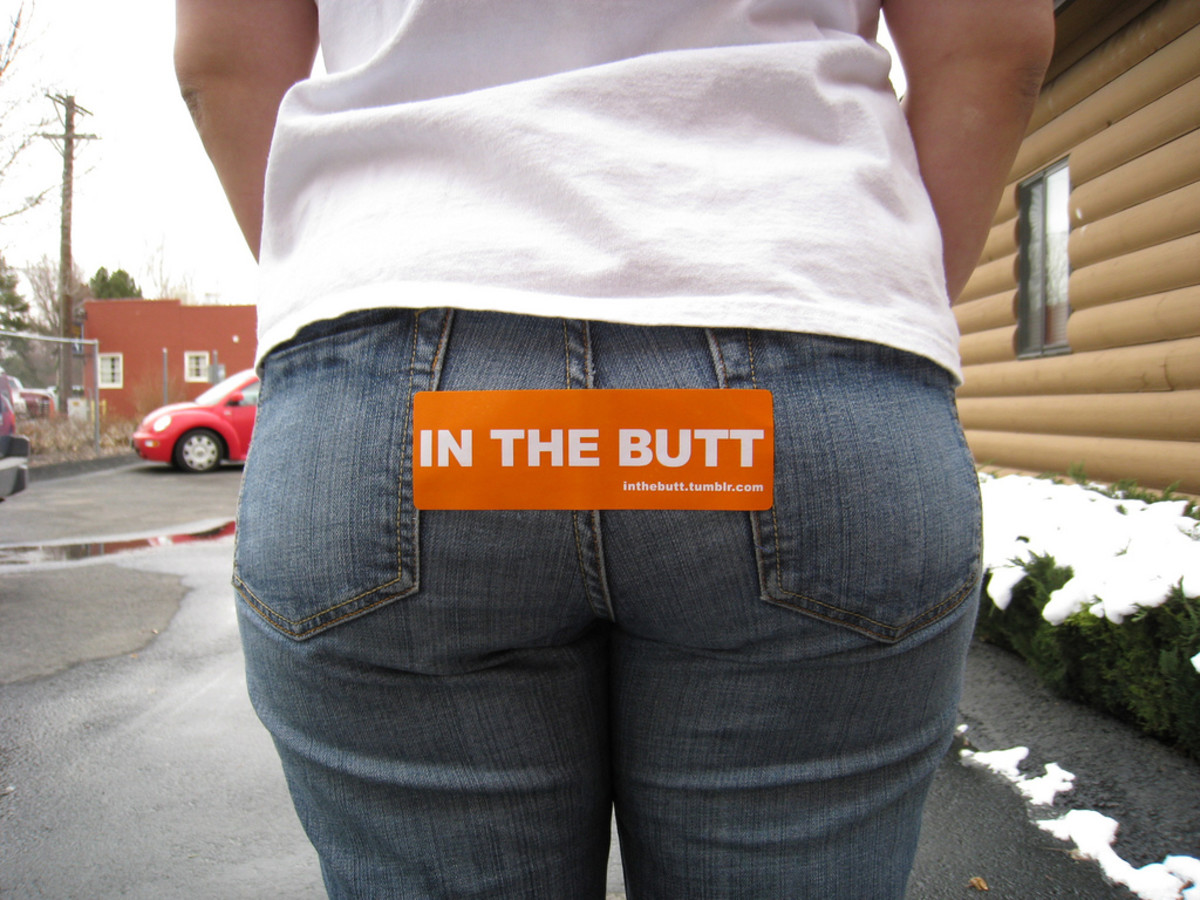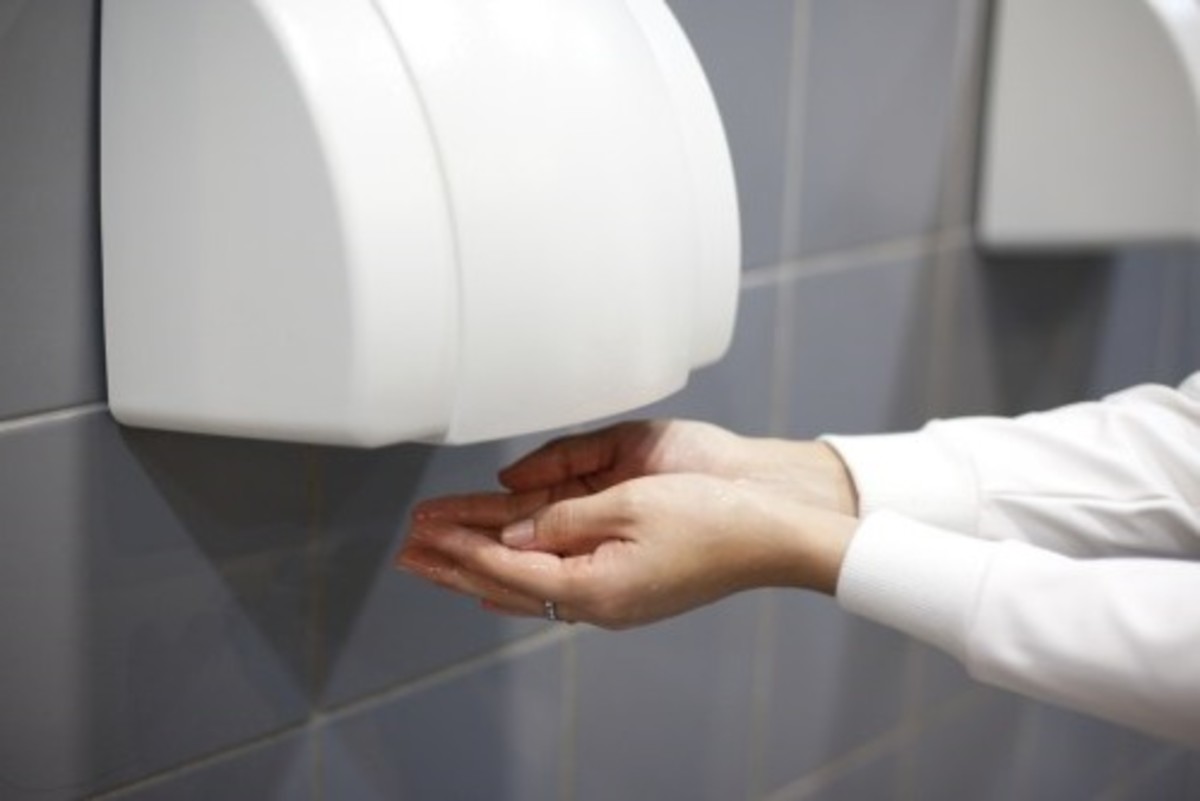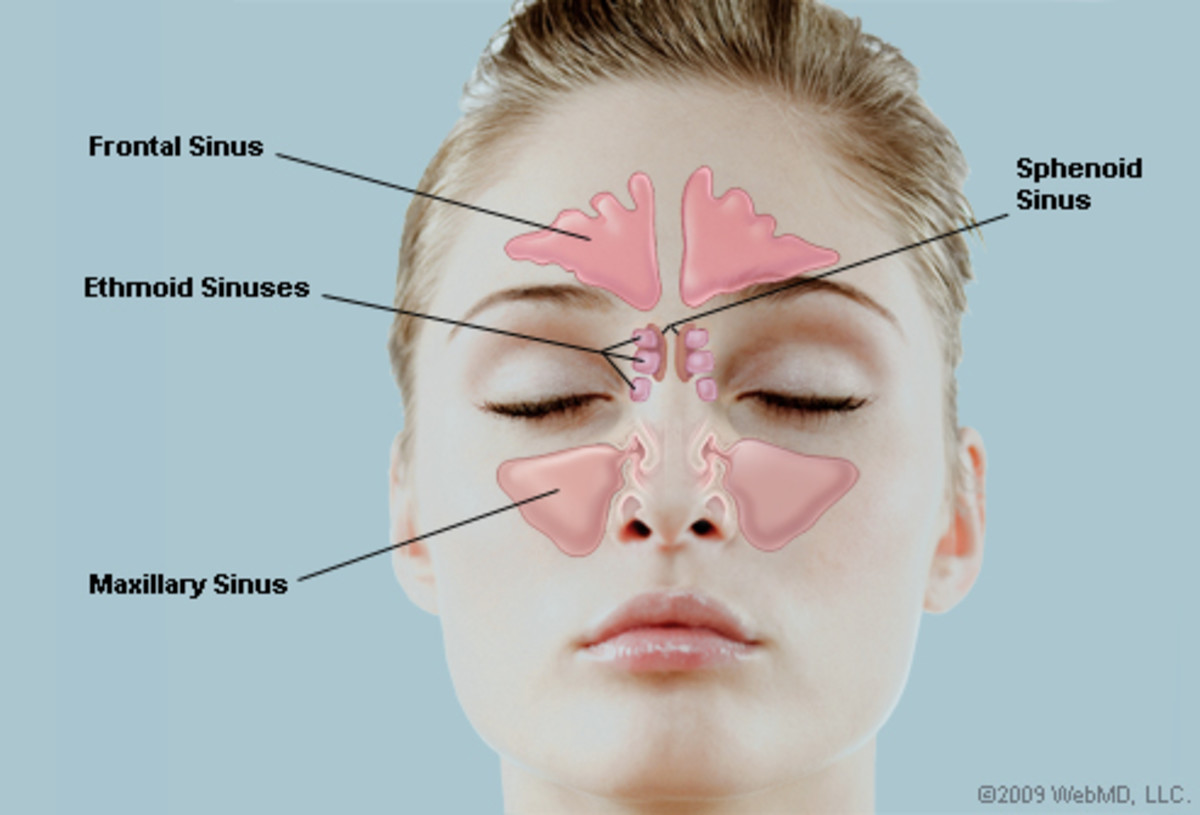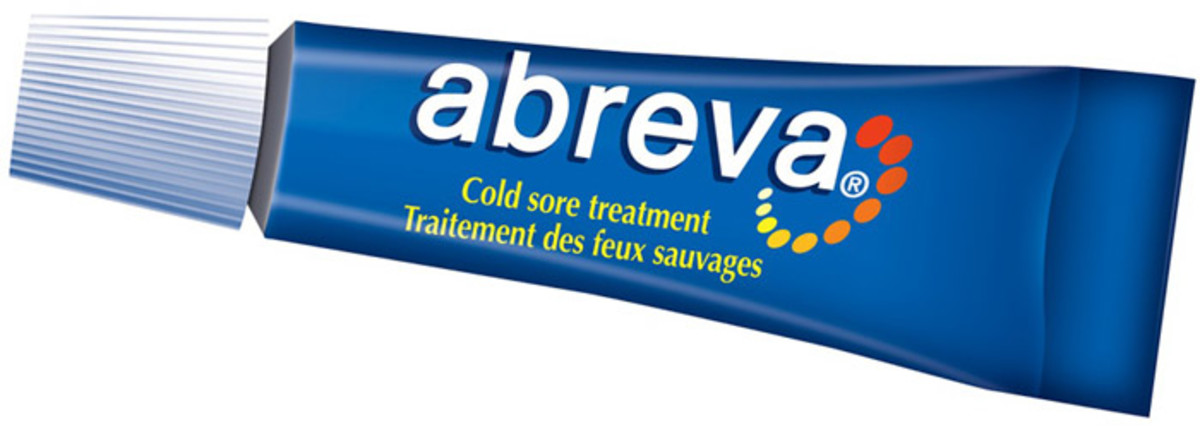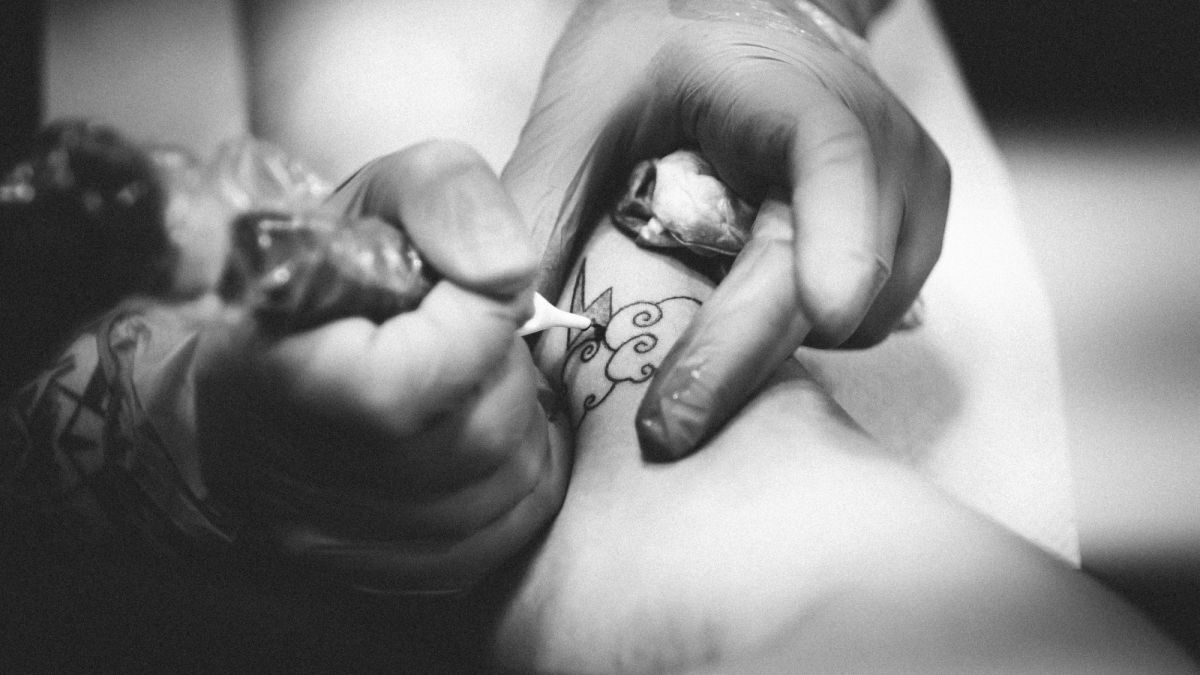Do Hospitals Make Us Sick or Is It Our Hotels?
Or could it be the germ laden washrooms in cafes and shops?
Ontario hospitals have recently been blamed for being dirty and unhealthy. Hidden cameras were used and some surfaces were deliberately coated in a film that could be detected under ultra-violet light. After a few days it was found that the film was still present on light switches, handrails and door handles, indicating that the surfaces had never been cleaned.
Another survey was conducted for CBC Marketplace by a Guelph University Professor, in which 6 major Hotel chains in 3 major Canadian cities were checked for contamination - and the results were staggering. Bed comforters, bathroom faucets and TV remotes were the most disgusting.
Faucets are so obvious; We didn't need a survey to prove this fact.
As an infectious disease expert said
'Some hospitals are a real freaking disaster.' The same could be said for some 'freaking' hotels.
It would be so easy to blame the cleaners for the dirt and germs that multiply on surfaces.
We’ve all seen cleaners trundling cleaning trolleys around; trolleys equipped with brushes, mops, cleaning cloths and pails of clean water. The very nature of the job means that the water will soon become dirty. No matter how professional the cleaners are, it is human nature to try to get a smidgen more out of that bucket of dirty water, even if they know deep down that they may be spreading infection.
However, some cleaners stick strictly to their job description; if they are hired to mop a floor, they tend to do exactly that. The fact that the dirty water splashed onto skirting boards, table/chair legs and equipment, would be someone else’s problem. That someone else being us, the inhabitants of a supposedly squeaky clean nation.
There is a point of view that says we must first of all be subjected to these infected surfaces in order to build up immunity. After all, isn’t that what flu vaccines do; inject a mild case of the flu bug into us so that our immune system can learn to become resistant to a full case of influenza?
We are the ones responsible for the slick coating of faeces, urine and grunge covering so many surfaces ………. but it isn’t always our fault.
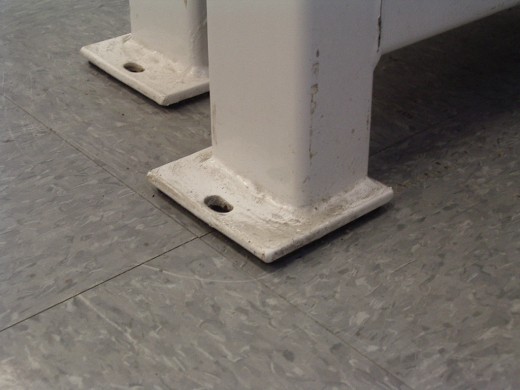
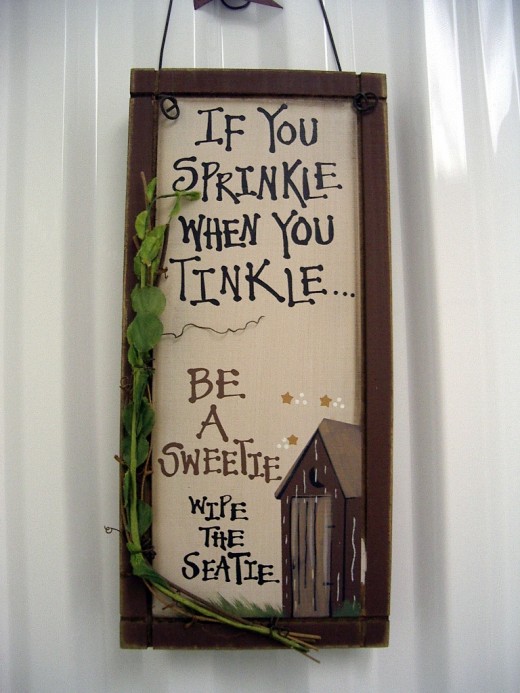
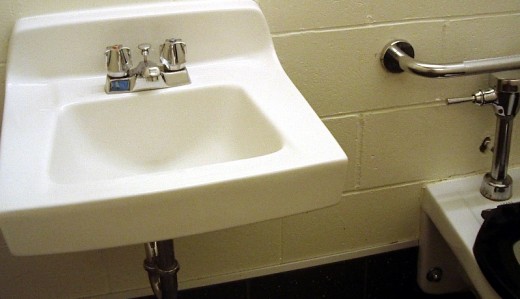
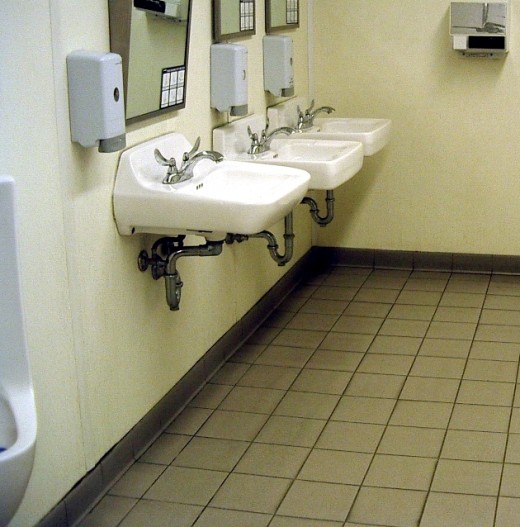
Hand Washing
We are always being exhorted to wash our hands after having been to the bathroom, as well as after sneezing or blowing our nose. The sneezing and nose part is asking a bit much, but is there any reason why we can’t wash our hands after being to the washroom? That depends on what ‘washing your hands’ means. According to the Ontario Health Board there are 11 steps, which should only take 15 seconds!!!!!!
1 Remove rings, watches and bracelets.
2 Wet wrists and hands with warm water
3 Use 1or 2 squirts of liquid soap, or cover hands with soft soap.
4 Lather soap and hands together, palm to palm.
5 Scrub in between and around fingers
6 Scrub back of each hand with palm of other hand
7 Scrub fingernails of each hand in opposite palm.
8 Scrub each thumb clasped in opposite hand.
9 Scrub each wrist clasped in opposite hand
10 Rinse thoroughly under running water.
11 Pat hands dry with paper towel.
15 seconds? In their dreams! If you can do all of that in 15 seconds, you should enter for the 'wash hands' race at the Olympics.
Do you remove your wedding ring before washing your hands?
Do you even wash your hands?
When was the last time you saw a scrubbing brush in a public washroom?
Perhaps you don't even enter public washrooms for fear of contracting beriberi. You probably do what most of us do - tighten your butt and cross your legs.
Washrooms (Bladder)
Are there any facilities for washing your hands?
I conducted a survey in the gent’s toilet. First of all I asked some urinal users if they washed their hands after they’d been. Each relieved gentleman was indignant at the question, and all answered -‘of course I wash my hands after voiding liquid waste,’ or words to that effect.
I followed up the survey with casual observations, and discovered that after men used the urinals, and shook it all about, their idea of washing their hands consisted of rubbing their fingers together under running water, and drying them off on their pants as they left the washroom. (I wondered if the word ‘urinal’ came from the act of shaking it all about and spreading urine-all over.) There was no soap involved, and certainly no jewelry removal – total time, 2 seconds.
Not being a peeping tom, I have no idea if ladies ‘shake their booty’ after they’ve been, but I certainly hope that their hand washing is more particular than gents.
Washrooms (Bowels)
With Gents, voiding solid waste was a different story; then hands were definitely & positively washed. Still no jewelry removal but time taken was more like 40 seconds, and hands were dried off. I can only assume that Ladies were more meticulous in their ablutions.
The thing is that nobody in their right mind would go to a public toilet to evacuate their bowels, but let’s say you are under extreme pressure and HAVE to go for a number two. If your ‘voiding’ goes according to plan and you’ve flushed the toilet with your foot, as is normal, before you can wash your hands, you will have to stand up, pull up your underwear, and skirt or pants, and perhaps fasten a belt, before you can leave the toilet stall. Then you will have to unlock the door, and turn on the taps. This means that you have soiled your underwear, pants, belt, as well as the door lock and faucet.
So what, you say, I washed my hands! But all that proves is that your hands are clean - what about your clothing, the lock and the tap? You’ve done everything you’re supposed to do but you are still a walking bacteria spreader. (If, after your bowel voiding, you discover that there is no toilet paper, or find out the smelly way that three-ply toilet paper isn’t as strong as advertised, you have a completely different scenario and good luck to you.)
Sneezing
Where does sneezing come into this scenario? A sneeze spreads 40,000 germ droplets at the average speed of 35 mph. And normally when you sneeze once you have to sneeze at least 3 or 4 times. Various health boards suggest that you catch your sneeze in a facial tissue (paper towel). If you don’t happen to have a paper towel you are advised NOT to sneeze into your hand. Very logical advice, as sneezing into your hand would mean that until you washed your hands everything you touched would be infected by germ droplets.
Many years ago, people carried handkerchiefs and they would sneeze into them. After using the handkerchief, it would be replaced in a pocket or handbag – sometimes into a separate germ proof plastic partition. Now handkerchiefs are out of fashion, but if you follow the modern advice for sneezing, mankind might soon be out of fashion.
In Canada, the Ontario Ministry of Health advises…..
‘Practice proper cough and sneeze etiquette by covering your mouth or coughing and sneezing into your upper sleeve.’
So if you’ve just come out of a public toilet and started sneezing, I’d advise you to head off home, throw all your clothes in the washer and dive under that shower.
Enjoy Life, and try not to sprinkle.


